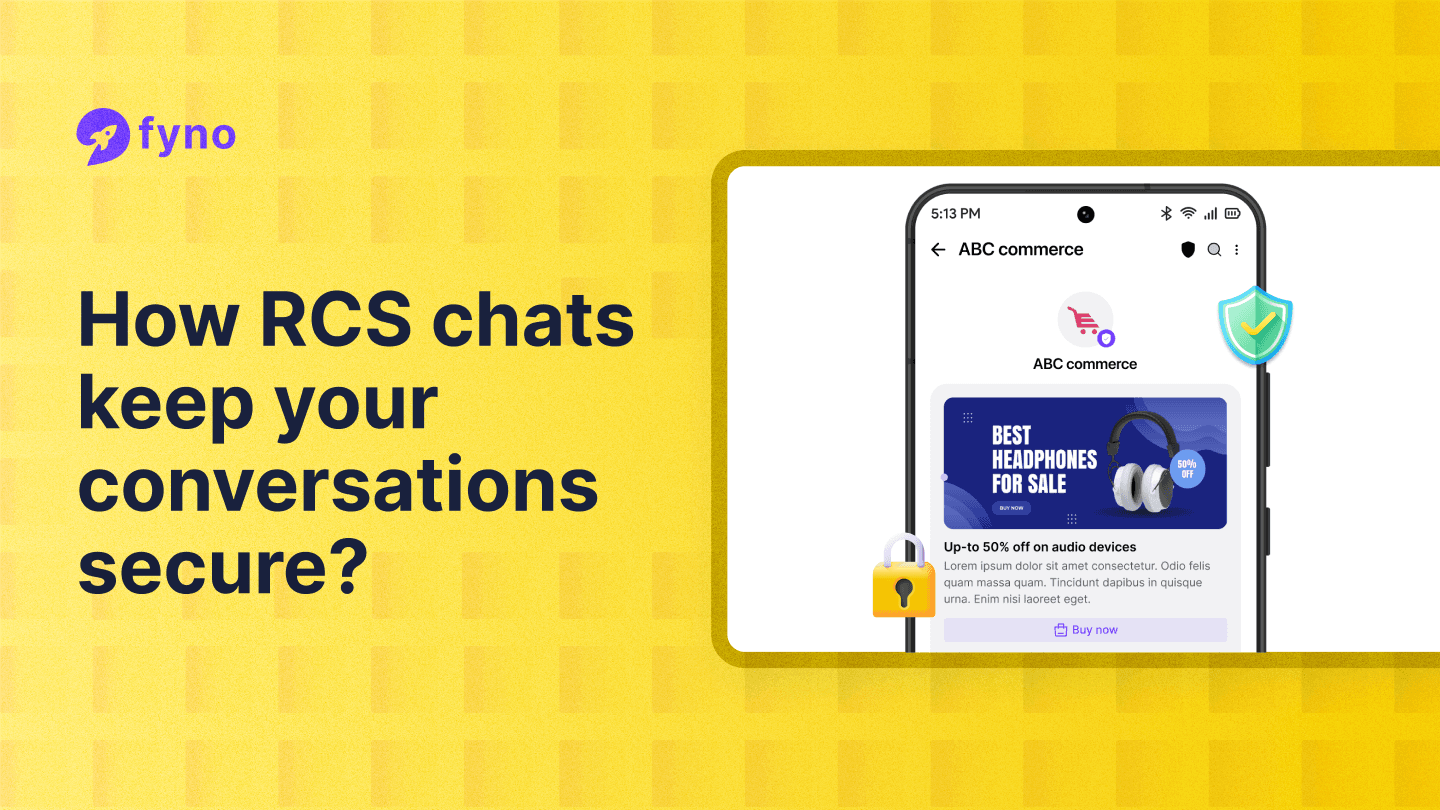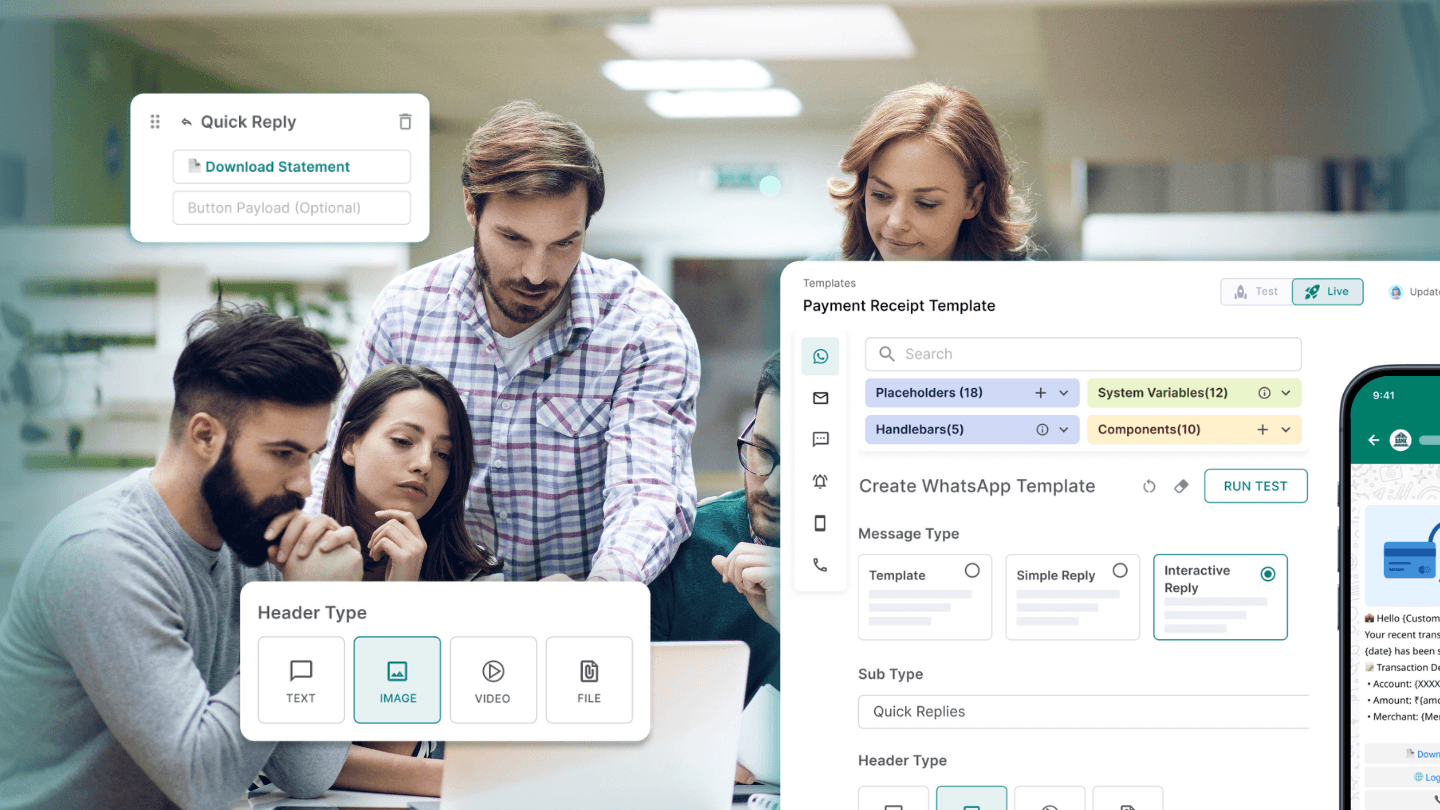What is RCS?
Rich Communication Services (RCS) revolutionises messaging for Android users, introducing capabilities far beyond traditional SMS and MMS. Unlike the basic text services provided by SMS and MMS, RCS allows for the transmission of high-quality media, such as videos and images, and supports interactive elements more akin to modern messaging apps.

How does it differ from SMS and MMS?
Compared to traditional SMS messages and text messages, RCS offers advanced features such as multimedia sharing, read receipts, and end-to-end encryption.
- Multimedia Capabilities: RCS transcends the capabilities of SMS and MMS by allowing the sharing of high-resolution photos, videos, and GIFs directly in the chat interface. While MMS supports multimedia to a limited extent, RCS provides a more robust and richer media experience.
- Chat Features: RCS includes features commonly found in modern messaging apps like WhatsApp or Telegram, such as group chats, video calls, location sharing, and file transfers, which are not available through SMS or MMS.
- Read Receipts and Typing Indicators: Unlike SMS and MMS, RCS supports read receipts and typing indicators, enhancing the interaction by letting users know when their message has been read and when someone is typing a response.
- Improved Security: RCS can offer end-to-end encryption, providing greater security for communications. SMS and MMS do not typically include end-to-end encryption, making RCS safer for transmitting sensitive information.
- Rich Interactions: RCS allows for richer interactions with features like suggested replies and actions, enabling users to interact with messages in more dynamic ways. This includes making reservations, scheduling appointments, and responding to invitations directly within the messaging app.
- Integration with Business Applications: RCS supports advanced business messaging, where businesses can send more interactive and attractive communications, such as promotional messages and customer support interactions. This is a significant upgrade over the often static nature of SMS promotions.
As the RCS market continues to grow, fueled by the adoption of 5G and the increasing demand for more immersive communication tools, it is a pivotal development in mobile technology. This shift not only enhances how individuals interact but also opens new avenues for businesses to engage customers through rich media and interactive messaging campaigns.
Is RCS chat only for Android phones?
Rich Communication Services (RCS) is emerging as a powerful tool for modern messaging, promising features beyond traditional SMS. While RCS has been predominantly associated with Android devices, recent developments indicate a shift towards broader adoption.
Will Apple/iOS ever adopt RCS?
Initially, Apple did not support RCS, sticking with its proprietary iMessage system, renowned for its end-to-end encryption and rich features. However, this stance is changing. Apple has announced plans to incorporate RCS in iOS 18, slated for release in the fall of 2024. This integration enhances interoperability between iOS and Android devices, ensuring a more unified messaging experience across platforms.
What this means for users?
For users, this means that in the near future, iPhone users might be able to enjoy RCS features such as higher resolution media sharing, rich messaging features like read receipts and typing indicators, and improved group chat functionalities currently available on Android. This move will also allow messaging over Wi-Fi and ensure a seamless fallback to SMS/MMS when RCS is unavailable.
Potential limitations
It's important to note that Apple's RCS implementation will not initially include some of iMessage's advanced features like message unsending or sticker use. Furthermore, Apple intends to focus on security, aiming to make end-to-end encryption a core part of RCS, enhancing privacy and security for all users.
RCS security and encryption
Unlike traditional SMS, RCS introduces advanced features like end-to-end encryption, providing users with enhanced security. This encryption ensures that only you and the person you’re communicating with can read what is sent. Additionally, data security for RCS is crucial for protecting sensitive information such as One-Time Passwords (OTPs) during transmission.
Network security also plays a vital role in ensuring the safe transmission of RCS messages. Messages are generally stored in data centers within a specified region, but considerations around network security may lead to data being rerouted in the event of a regional outage.
How is data encrypted in RCS messages?
Data encryption in RCS messages occurs from the moment they leave your device until they reach the recipient.
For instance, Google Messages, the primary client for RCS, incorporates end-to-end encryption to protect your messages against interception by third parties.
- Encryption Path: RCS messages are secured through encryption between the end user's device and Google's servers. This means that as messages travel from your phone to the server, they are protected against unauthorised access.
- Exclusive Client Support: Currently, Google Messages is the only RCS client that offers end-to-end encryption. This level of security ensures that messages are readable only by you and the recipient, not even by the servers handling them.
- Protection Mechanism: End-to-end encryption plays a crucial role in maintaining the confidentiality of your communications. It acts as a robust barrier, ensuring that no third party can intercept or decipher the content shared between you and others.
What role does the Google Messages app play in RCS security?
- Security Priority: Google Messages prioritizes the security of your data, employing advanced measures to safeguard your information while maintaining your privacy.
- Robust Protection: The app protects your information with world-class security technologies, making it a trustworthy choice for managing your communications.
- Spam and Feature Enhancement: Besides security, Google Messages utilizes data to enhance functionalities such as spam detection. This not only improves user experience but also adds an extra layer of protection against potential threats.
Data storage and compliance
When it comes to modern messaging systems like RCS (Rich Communication Services), understanding how data storage and compliance are handled is crucial for user confidence and legal adherence.
RCS Business Messaging plays a significant role in ensuring secure and compliant business communications by verifying the identity of businesses before sending messages, thus enhancing trust and security. Here’s what you need to know:
What data is stored on the end user’s device and how is it secured?
RCS stores metadata about your interactions with RCS agents directly on your device. This data could include personal information exchanged during conversations. Strong encryption methods are employed to secure this data.
How does RCS comply with EU Payment Services Directive 2 (PSD2)?
RCS compliance with PSD2 is integral, particularly in ensuring that Strong Customer Authentication (SCA) requirements are met. Since RCS is linked with your verified phone number and SIM card, sending a One-Time Password (OTP) over RCS is recognized as a compliant SCA method. This association enhances the security of your transactions, adhering to the guidelines set by the European Banking Authority.
User data and privacy
Privacy concerns are paramount, especially when integrating services like RCS into everyday communications. Understanding what information is shared and how it's used is key to transparency and trust.
What information about end users does Google provide to the brand?
To facilitate RCS conversations, Google may share your telephone number with the brand, enabling them to recognise you in the conversation. While this enhances communication efficiency, it's important to note that Google also collects metadata and, potentially, content from these conversations—even if you don't have a Google account. This collection helps improve service delivery but also raises important privacy considerations.
Best practices for brands
Rich Communication Services (RCS) has emerged as a transformative tool for businesses aiming to enhance customer interactions with enriched, secure messaging capabilities. As privacy concerns continue to grow, understanding how to implement RCS while maintaining rigorous security standards is critical.
Tips for building a great RCS strategy
Building an effective RCS strategy involves detailed planning and execution tailored to the specific needs of your industry. Here’s a breakdown of strategic steps brands can take:
- Research how others in your field use RCS: Start by examining case studies and success stories of RCS implementation within your industry.
- Find an API that connects your platforms: Choosing the right API is crucial for seamlessly integrating RCS into your existing communication infrastructure.
- Advanced messaging support: Ensure compatibility with features like rich media, location sharing, read receipts, and typing indicators.
- System compatibility: Must integrate seamlessly with existing CRM, ERP, or customer support platforms.
- End-to-end encryption and compliance: Essential for protecting sensitive data and adhering to industry-specific regulations such as GDPR, HIPAA, etc.
- High availability and scalability: Guarantees minimal downtime and low latency for reliable, real-time messaging. Capable of handling increased message volumes as your business grows.
- Detailed documentation: Provides clear instructions for easy integration and troubleshooting.
- Robust Support: Offers reliable customer service to resolve integration and operational issues.
- Sandbox Environment: Allows for safe testing of RCS features without impacting live operations.
- Build a strategy and A/B test your strategies: Develop a strategy that addresses your sector's communication and security needs. Conduct A/B testing to determine which messages yield better customer engagement and satisfaction.
- Roll out your strategies and refine them as needed: Once your strategy is in place, gradually roll it out to monitor its effectiveness in real-time. Be prepared to make adjustments based on customer feedback and new security challenges.
RCS chats and messages
Rich Communication Services (RCS) enhances how brands interact with customers by enabling richer, more engaging chat experiences directly from the user’s native messaging app.
An RCS message introduces advanced features like rich media sharing, group chats, and read receipts, similar to iMessage for Apple users, enhancing communication significantly. Unlike traditional SMS, RCS allows businesses to send multimedia messages, including images, videos, and rich links, making communication more informative and visually appealing.
How can brands use RCS chats to enhance customer engagement?
- Personalised Promotions: RCS can deliver tailored promotions and updates to customers, making them feel uniquely valued. For instance, a brand could send real-time alerts about sales or discounts that align with the customer's previous purchases or expressed interests.
- Direct Actions: Through RCS, businesses can drive customer actions by providing links directly to their websites or giving precise directions to physical store locations. This seamless integration encourages immediate engagement and reduces the steps a customer must take to interact with the brand.
- Enhanced Interactivity: RCS supports interactive elements like carousels and suggested reply buttons, enabling a more dynamic interaction between the brand and the customer. This can significantly enhance the customer's experience and satisfaction, making each interaction more engaging and effective.
What are the benefits of using RCS messages for customer communication?
- Richer Interactions: RCS offers a more interactive and engaging experience compared to SMS and MMS, which are more text-limited. It supports various media types and interactive features that can captivate customers.
Unlike traditional text messaging, RCS enhances communication by adding features like read receipts, typing indicators, and the ability to send messages over Wi-Fi, improving both user experience and security.
- Dependence on Mobile Data: Unlike SMS, which can be sent over a cellular network, RCS requires an active mobile data connection. This allows for transmitting higher-quality content and supports more complex interactions.
- Coexistence with Traditional Messaging: While RCS can replace SMS, it is more likely to coexist with SMS and MMS for the foreseeable future.
Conclusion
RCS (Rich Communication Services) stands out as a transformative solution, enhancing both privacy and functionality. As this technology gains traction, understanding its security features becomes crucial for users and businesses alike. RCS not only enriches user interaction with high-quality media and interactive elements but also introduces enhanced security measures like end-to-end encryption.
FAQs
1. What is RCS, and how does it differ from SMS and MMS?
RCS, or Rich Communication Services, is a modern messaging protocol that offers advanced features like high-quality media sharing, read receipts, and typing indicators. These features make it more interactive and secure than traditional SMS and MMS.
2. Is RCS secure, and does it offer encryption?
Yes, RCS can provide end-to-end encryption, ensuring that your messages are secure and only readable by you and the recipient. This is a significant upgrade over the security provided by SMS and MMS.
3. Which devices support RCS messaging?
RCS is predominantly supported on Android devices, but Apple has announced plans to adopt it in iOS 18 and make it available on iPhones as well, enhancing cross-platform communication.
4. How does RCS enhance business communications?
RCS allows businesses to send interactive and rich media messages directly to customers, such as promotions, updates, and customer support messages, improving engagement and providing a more immersive experience than SMS.
5. Does RCS require an internet connection to work?
Yes, RCS messages are sent over a mobile data connection or Wi-Fi, allowing for higher-quality content and more interactive features than traditional SMS.
6. How does Google Messages support RCS security?
Google Messages is currently the primary RCS client offering end-to-end encryption, ensuring that your conversations are protected against unauthorized access and providing a secure platform for messaging.
7. Will RCS replace SMS entirely?
While RCS offers many advantages over SMS, it is more likely to coexist with SMS for the foreseeable future, allowing users to choose the best messaging method based on their needs and available network conditions.


